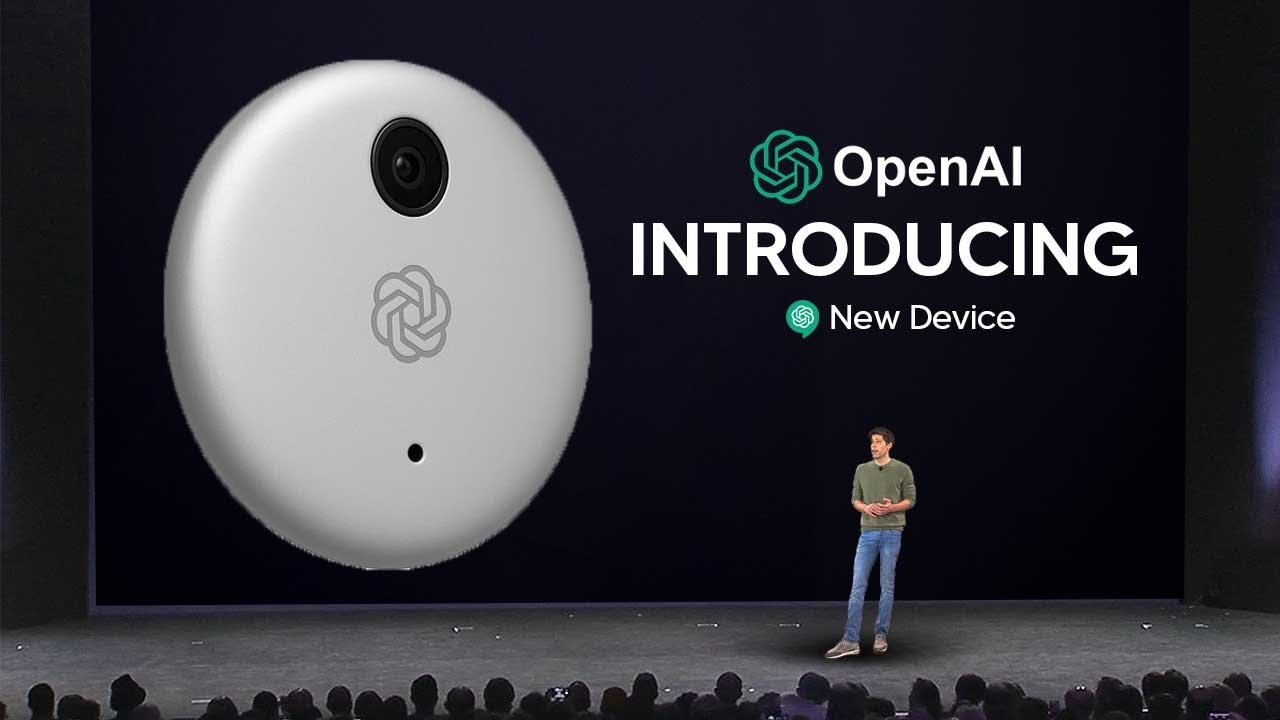OpenAI has announced a revolutionary, pocket-sized AI device developed in collaboration with Jony Ive, designed to be discreet, stylish, and seamlessly integrated into daily life, aiming to reduce phone usage and enhance ambient AI experiences. This innovative device, expected to ship 100 million units by 2027, could reshape the AI hardware market by emphasizing privacy, local processing, and intuitive, screen-free interactions, potentially sparking a new era of invisible, ambient AI helpers.
OpenAI has announced a groundbreaking new device, marking a significant shift in consumer technology. This $6.5 billion acquisition of Joanie IV’s startup, IO, and the collaboration with legendary designer Jony Ive aim to create a completely screen-free, pocket-sized AI device that is contextually aware of its surroundings. Unlike traditional gadgets, this device is designed to reduce phone usage and seamlessly integrate AI into daily life, positioning itself as a third core device alongside the MacBook and iPhone. Its ambitious goal is to ship 100 million units quickly, with mass production expected to begin in 2027, signaling a major move toward redefining how we interact with AI.
The device’s design and purpose are revolutionary. It won’t be a smartphone replacement, wearable glasses, or a bulky gadget, but rather a discreet, stylish, and highly functional AI companion that fits in your pocket or sits on your desk. The focus is on creating an intuitive experience that helps users avoid screen fatigue and intrusive interactions. This approach contrasts sharply with recent failures in the AI device market, such as the Humane AI pin and Rabbit R1, which struggled due to poor usability, overheating, or lack of clear value. Instead, OpenAI and Ive aim to deliver a genuinely useful, reliable, and aesthetically pleasing product that solves real problems.
The current AI device market has seen mixed results, with some products like the Humane pin and Apple’s Vision Pro facing criticism for high costs, poor battery life, or limited practicality. Meanwhile, more successful integrations of AI into existing products, like Meta’s smart glasses and Google’s AR platforms, demonstrate that AI’s best potential lies in enhancing familiar devices rather than creating entirely new, radical form factors. The future of AI devices is expected to be more integrated, with local processing chips and hybrid cloud models enabling faster, more private, and more seamless interactions, paving the way for a new era of ambient AI that quietly assists users everywhere.
Looking ahead, the industry is moving toward AI-first, screen-optional devices that are embedded into everyday objects, from jewelry to clothing, with local processing chips and hybrid cloud models enabling instant responses and privacy. The concept of ambient AI—discreet helpers scattered throughout homes, cars, and wearables—could become the norm, making AI an invisible but integral part of daily life. Privacy and regulation will play a crucial role, with on-device processing becoming a competitive advantage as companies emphasize user data control and compliance with emerging laws, further shaping the future landscape of AI hardware.
Ultimately, the partnership between OpenAI and Jony Ive could revolutionize the AI device market by delivering a product that is genuinely useful, beautifully designed, and seamlessly integrated into daily routines. Their combined expertise in AI and high-end design aims to avoid past pitfalls and create an essential device that feels natural and indispensable. If successful, this could trigger a new technological race among giants like Apple, Google, and Meta, all striving to develop their own versions of this next-generation AI interface, potentially transforming the way we live, work, and connect with technology.
